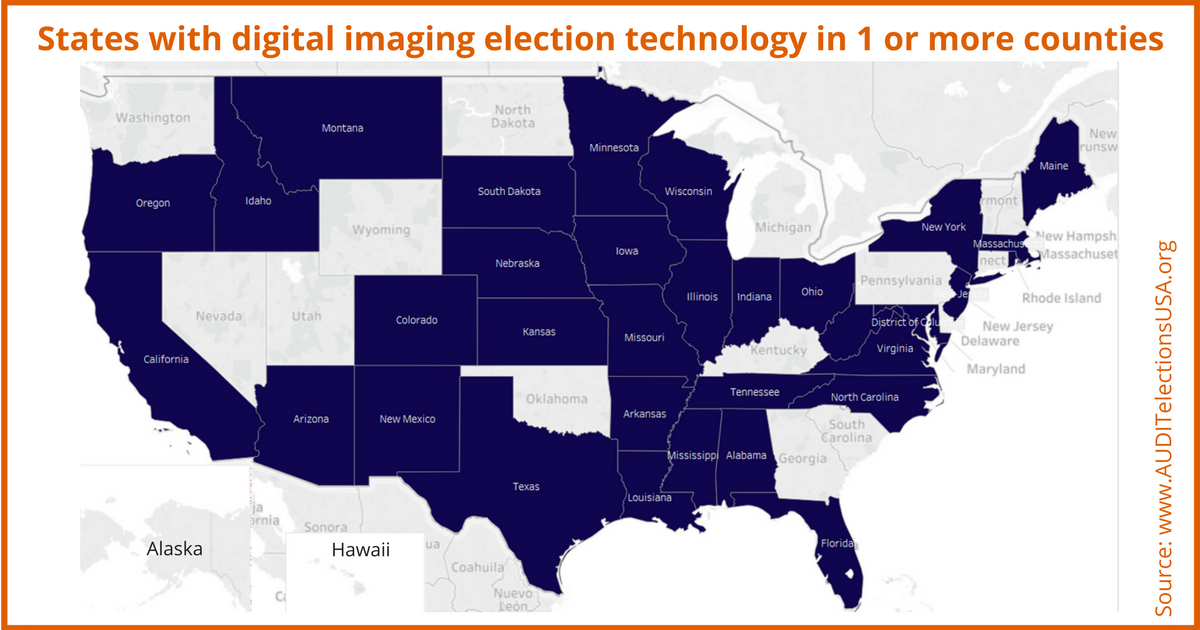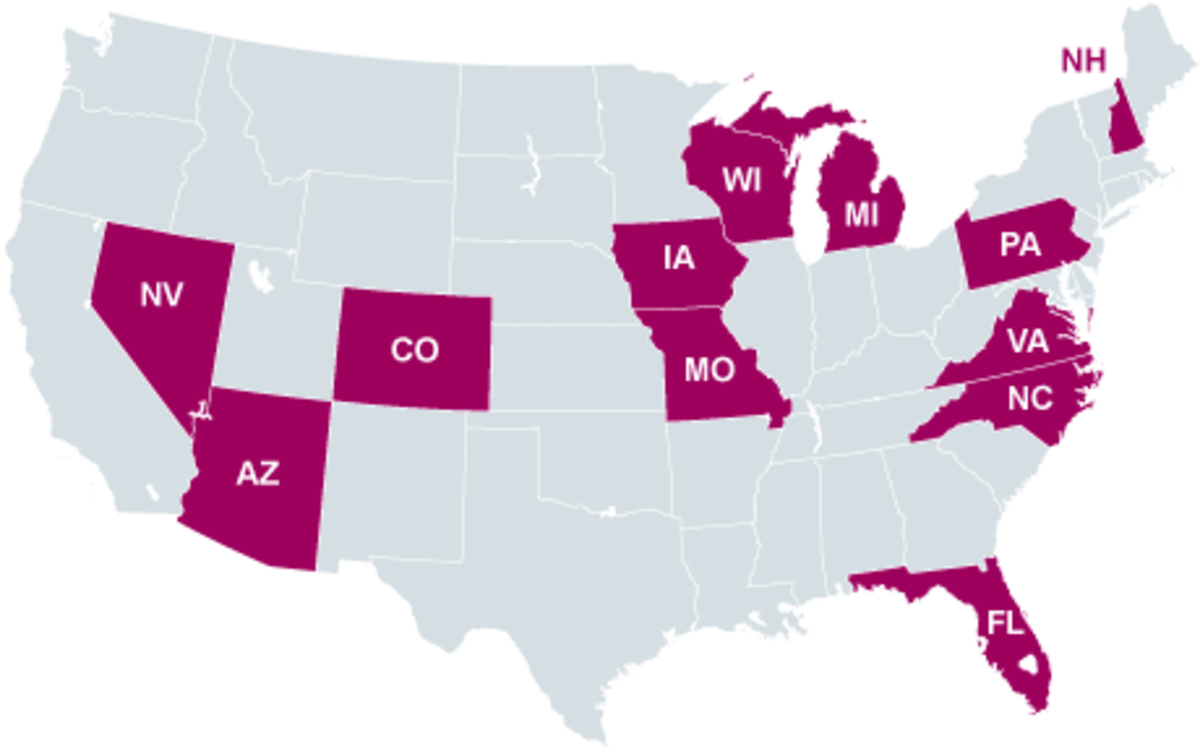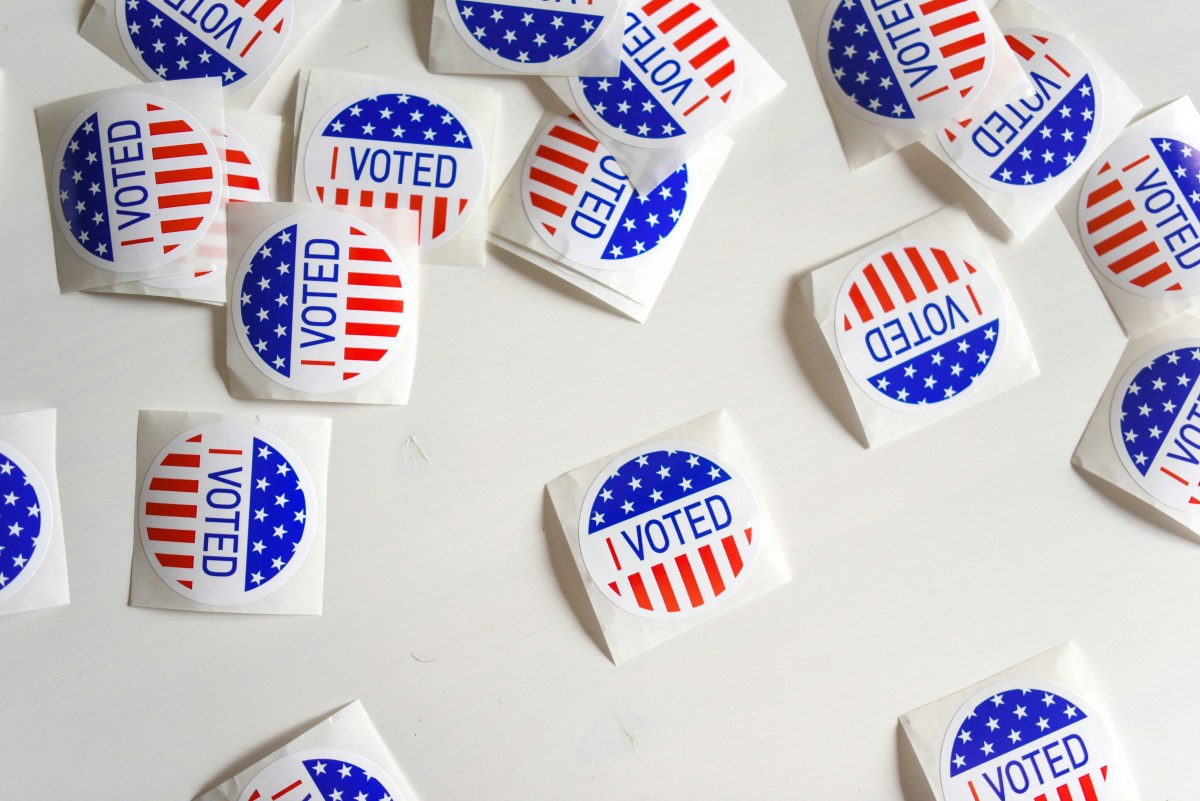Trump Calls for Firing of Florida Election Supervisor Who Illegally Destroyed Ballots

A Florida election supervisor whom a state judge ruled had "illegally" destroyed the ballots from a contested 2016 Democratic primary, and who is now mired in multiple recount efforts, was called upon to be fired by President Trump Wednesday. Broward County election supervisor Brenda Snipes, who ordered the paper ballots destroyed in a primary race between incumbent Rep. Debbie Wasserman-Schultz and Florida law professor Tim Canova, is under fire for violating Florida law. Trump disputed the narrative that Snipes was incompetent, instead opening the attack that Snipes was "very competent, but in a bad way."
Trump said in an interview with the Daily Caller:
“When they call this woman incompetent, they’re wrong. She’s very competent but in a bad way.”
Rep. Wasserman-Schultz is a former chair of the Democratic National Committee, who was forced to resign when Wikileaks documents showed that, rather than remaining neutral as her position called for, she was committed to the nomination of Hillary Clinton over Bernie Sanders for the party's presidential choice.
In a summary judgement granted to Tim Canova, Wasserman-Schultz's 2016 primary opponent, Florida state judge Raag Singhal declared Snipes' destruction of the ballots "illegal and unlawful" and in violation of both state and federal law. The destruction of the ballots made any meaningful recount impossible, in a race in which Canova lost to Hillary Clinton ally Wasserman-Schultz, 56% to 43%.
Federal law 52 USC 20701 requires that paper ballots in all congressional races be preserved for at least 22 months after the election, and calls for penalties of "not more than $1,000" or imprisonment "for up to one year," or both.
Snipes is at the epicenter of multiple contested vote counts, including a governor's race, a US Senate race, and an agricultural commissioner contest, which, together with similar election fiascos taking place across the country, are casting a harsh spotlight on the US election system. Or rather, the lack of it. Fair elections activists and observers across the country have been saying for years that the US is behind the rest of the modern world in election practices, and have likened US elections to those of a "banana republic."
However, these same activists say, the most carefully wrought system is futile if those charged with running it simply ignore it. Hence the first requisite of fair elections activists, also known as election transparency activists or election integrity activists: accountability.
Accountability includes very real punishments or deterrents for official misbehavior. Canova, who was asking for the ballot recount before Snipes admitted that she had ordered the ballots destroyed, said on his website:
"There is no rational reason to trust the election results here in Broward County, where the elections office is literally a criminal enterprise acting with impunity."
After the destruction of the ballots for the 2016 primary, Canova once again challenged Wasserman-Schultz, this time as an independent. This time the machine vote count for Canova was 5%.
Impunity means literally, from its Latin roots, "without punishment." Canova had repeatedly asked state and federal law enforcement to follow up on the findings of fact in Judge Singhal's courtroom, to no avail. Even some of Trump's detractors say that Trump seems to be the only public official to recognize that Snipes did anything illegal, albeit many would say he is politically motivated.
At his campaign website Canova wrote:
"I reached out to Florida Governor Rick Scott months ago, as well as Democratic and Republican party officials, state and federal law enforcement agencies, and every member of the U.S. House of Representatives and Senate. None responded, no one saw fit to investigate,"
Republican Governor Rick Scott, as well as Florida Secretary of State Ken Detzner, had declined to take any action against Snipes in the Wasserman-Schultz case, beyond verbal slaps on the wrist and promises to watch closely the Broward County election department in the future. Just how effective such platitudes are is now the bitterest of ironies. As the recounts for governor and US senator continue, Snipes' office continues to, in the words of Senator Marco Rubio, violate procedures mandated in state election law.
One example given by Rubio, who is also a lawyer, is the handling of provisional ballots, which are supposed to be declared valid by a canvassing board before they are counted. Snipes' has admitted that disqualified provisional ballots were included in one vote count, when the ballot envelopes were opened and all the ballots counted, even ones subsequently disqualified when the envelopes were examined for signature and other requirements. Once a provisional ballot is removed from its envelope and included in a batch, there is no way to link the ballot back to its envelope, thus spoiling the whole batch.
Today election workers admitted they could not account for a 2,040 vote difference between first announced results and recount results. [FLORIDA STATE ELECTION CODE]
If Trump's suggestion is to be believed, that such election fiascos may be a form of organized chaos, it can benefit either party. In Georgia, Democratic candidate for governor Stacey Abrams is challenging the results of the voting, after Republican Brian Kemp eeked out a victory. After a private citizen found out that it was easy to go into the state's voter registration database and change a voter's registration, and reported it to the authorities, Kemp, who was Georgia Secretary of State at the time, turned around and opened an investigation of the Georgia Democratic party for election hacking. In an appearance on Good Morning America, Abrams said that Kemp had "cooked up the charge, because he realizes, once again, he left the personal information of six million voters vulnerable...'
In the 2016 Democratic primary elections, between Hillary Clinton and Bernie Sanders, voters repeatedly found that they were not registered to vote or their registrations in the database, in crucial states like New York and Arizona. The problem overwhelmingly impacted potential Sanders voters, leading some election integrity activists to speculate that Clinton partisan hackers had used the NGP VAN database, a Democratic party database, to determine who the Sanders voters were. Audit Elections USA founder John Brakey, when asked if the database would contain this kind of information, scoffed: "They know everything. They know if you like anchovies."
Activists from across the political spectrum express similar suspicions as Trump has, regarding the possibility that the incompetence narrative is too convenient. One said recently " “If you want to defraud someone, you make it look like a mistake.”
A Solution?
Election transparency activists are in remarkable accord recently on what constitutes a hack-proof voting system. Advances in technology have made elections which can be verified by the citizens themselves a reality, but for the resistance of election departments to lift the veil of secrecy over ballot records, which they justify by invoking the principle of "the secret ballot." Transparency activists counter that this is willful ignorance which deliberately obscures the meaning of the secret ballot.
Otherwise, the system used by most advanced Western nations, hand-marked, hand-counted paper ballots, would violate the principle of the secret ballot, because the ballots are hand-counted in public where observers can see what they say.
The secret ballot means any particular individual's choices are secret. Since no paper ballot in America has any identifying mark that would enable it to be traced back to any individual voter, this argument by election officials is a desperate reach. The question then becomes, why? What is it that is so important to hide, that officials would put their name to such a nonsense argument?
John Brakey of Audit Elections USA says simply: "Voting is secret. Counting the votes is not."
Thus, besides accountability, the other guiding principle of election activists is transparency. Although election practice and law is a huge area, involving political decisions such as gerrymandering, voter ID requirements, and voter suppression such as inadequate polling stations or registration hacking, none is more important than implementing a system, nationwide, which inspires confidence in the results of elections.
Election activists are of two different but similar minds in what constitutes the best voting system. The ideal which triggers little dissent is the rest of the world's voter hand-marked, publicly hand-counted paper ballots. But pragmatists within the movement opine that this has little chance of being adopted in big cities in the US, even though big cities around the world like Berlin and Paris have implemented this smoothly.
The second-best option, agreement seems to run in activist circles, are the modern vote-counting machines which are presently in use in about half of US voting jurisdictions. Presently the qualifying machines are the ES&S (Election Systems and Software) DS200, the ES&S DS850, the Dominion ImageCast Precinct and ImageCast Central, the Hart Intercivic Verity Scan and Verity Central, and the Unisyn Voting OpenElect OVO. These are machines which produce a digital image of each ballot as it is fed into an optical scanner. The scanner takes an instantaneous digital picture of the ballot, then counts the votes from that digital picture. (Counties which use vote-counting machines with ballot images feature.)

Election activists are wary of present legislation being crafted which moves away from this technology, to one which makes it easier to cheat. They are quick to emphasize that voter hand-marked paper ballots, counted by machines which take images of the ballots, are the way to go, because the digital images of ballots can then be posted online or burned onto media for citizens to count for themselves, precinct by precinct. This would make possible what would essentially be "crowd-source" counting of votes. Audit Elections USA has published a handbook on how to request and use ballot images for citizen recounts.
Any system which involves a touch screen, except for the handicapped, is a system which is much easier to hack, because it lacks the physical paper trail of the paper ballot, with unique hand markings to distinguish it from every other. Presently, legislation winding its way though Congress, sponsored by Rep. Tulsi Gabbard, would allow such systems - called DRE for Direct Recording Electronic - to become standard. This only reinforces perceptions that Congress is pushing for reform that would make elections even easier to hack than they are now. Recent reports from a highly-regarded computer hacking conference conclude that election hacking is "child's play."
Saying "We Screwed Up" Not Good Enough
And what of elections which are simply, hopelessly, "screwed up" to the point where no one can know the true winner? These are the words used in referring to the Florida recount by an AP reporter. In Broward County, in Texas, and in Georgia, recount observers are complaining about more votes than registered voters in some precincts, bad ballots mixed in with good, and all manner of monkey business and shenanigans.
This, again, comes under the rubric of accountability. It is not OK for election authorities to simply throw up their hands, admit that they screwed up, and go on with their lives. It is a compelling public interest that if laws were broken, officials must pay. Otherwise, say activists, it's the new normal. Where stipulated by law, criminal penalties must be imposed, just as vigorously as the administration has threatened prosecution to the fullest extent of the law to any immigrant who illegally casts a vote.
Moreover, it is a compelling public interest, even if it is expensive, to hold run-offs when the first results are not certifiable. The divide in America does not need the added mistrust and suspicion stemming from dirty referees on top of an already toxic atmosphere, in which views as divergent as they have been since perhaps the Civil War are being settled at the ballot box.








